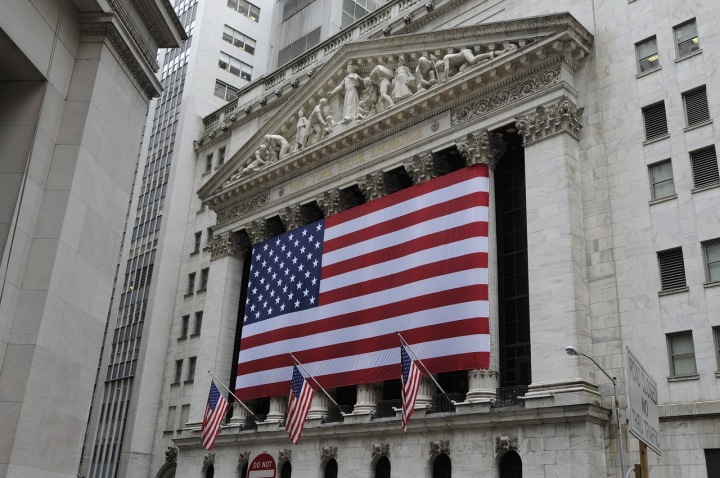Panika na akciových trzích postihla zejména technologické firmy, na globální krizi to ale zatím naštěstí nevypadá
Významné světové burzy v posledních dnech oslabil výbušný koktejl, který měl za následek jeden z nejhorších dnů na akciových trzích v historii. Nejvíce trpěly asijské trhy, stranou ale rozhodně nezůstaly ani Spojené státy. Naopak Evropa hlásí klidnější situaci. Pro řadu investorů to může být navíc výzva poohlédnout se po nových investicích.
Světové akciové indexy ovládla obrovská panika. Hlavním důvodem jsou obavy z možné recese ve Spojených státech. Právě tam totiž statistici zveřejnili nejhorší výsledky z průmyslu za poslední rok. Americký trh práce navíc oslabil nejvíce od konce roku 2021. Do toho se přidaly obavy investorů z toho, že praskne bublina umělé inteligence. Analytici pak také upozorňují na rostoucí geopolitické napětí kvůli možnému konfliktu mezi Izraelem a Íránem.
Strmý pád
Americké akcie zaznamenaly na počátku srpna prudký pokles. Za výprodejem stály především technologické tituly, jako jsou výrobce čipů Nvidia a značky Apple, Microsoft, Alphabet, Amazon, Meta a Tesla. Index S&P 500 kvůli tomu klesl hned o tři procenta, což byl také nejprudší sešup od roku 2022.
Ve volném pádu se ocitl rovněž bitcoin, jenž nejdříve ztratil skoro 14 procent. To potvrdilo tvrzení kritiků, že tato kryptoměna rozhodně není ani zárukou nízkého rizika a ani vysoké ziskovosti.
Ještě větší dopad měla krize na asijské trhy. Hlavní japonský index Nikkei v první chvíli ztratil přes 12 procent a zažil tak nejhorší den od roku 1987. Vážnost situace podtrhovala skutečnost, že japonská měna dosud představovala bezpečné útočiště, podobně jako třeba zlato. Korejský Kospi pak poklesl o téměř 10 procent. Dokonce tak muselo být na čas zastaveno jeho obchodování.
Blbé náladě rozhodně nepomohl ani miliardář Warren Buffett, jehož firma Berkshire Hathaway prodala polovinu svých akcií Applu. Ukázala tak, že cenné papíry tohoto známého brandu nemusí být až tak úplně perspektivní, jak se ještě před několika málo týdny předpokládalo.
A i když se později situace trochu uklidnila, stále se objevují známky nejistoty, které se odrážejí v kolísavosti některých trhů.
Klidná Evropa a budoucí vývoj
Samotnou Evropu ale postihl tento náraz mnohem méně, než tomu bylo za oceánem. Hlavní akciové indexy tu odepsaly mezi 2 až 3 procenty. Starý kontinent tak dost možná i těží z absence technologických obrů, k čemuž se přidává argument, že v následujících týdnech mohou evropské indexy podávat lepší výkon než americké protějšky.
Jaký dopad to tedy může mít do budoucnosti? Většina expertů, které jsme oslovili, nabádá spíše ke klidu.
„Je potřeba říci, že obavy o recesi ve Spojených státech nejsou tak úplně na místě. Akciové trhy nejsou to samé co ekonomika. Hrubý domácí produkt tam ve druhém čtvrtletí rostl o 2,8 procenta. Takovému tempu se neblíží žádná ze západních zemí. I přes růst nezaměstnanosti jsou v dobré formě i američtí spotřebitelé. Maloobchodní tržby tam meziměsíčně rostou nepřetržitě od února. Úkolem centrální banky je udržovat inflaci na jejím cíli, ne udržovat akciové indexy na vysokých hodnotách. Aktuální panika je tak dost přehnaná,“
řekl LP-Life analytik makléřské společnosti Purple Trading Petr Lajsek.
Zachovat chladnou hlavu radí rovněž portfolio manager firmy Conseq Martin Pavlík.
„Pokud se trhy uklidní, můžeme očekávat, že evropské trhy rychle část ztrát umažou. Je to dané atraktivními hodnotovými ukazateli akcií, lepším ekonomickým momentem, relativně silnými domácnostmi a uvolněnou měnovou politikou Evropské centrální banky,“
napsal redakci tento expert a dodal:
„Evropa si již několik čtvrtletí prochází ekonomickou stagnací, přičemž současné momentum je mírně pozitivní. Ve Spojených státech je tomu obráceně. Pokud tedy Amerika nespadne do hlubší recese, tak v České republice bychom prozatím neměli pocítit negativní tendence.“
„Barel ropy brent se kvůli obavám o americkou ekonomiku dostal na nejnižší úrovně za tento rok. Ceny pohonných hmot tak u nás budou klesat i nadále. To ocení nejen domácnosti, ale i dopravci a podniky,“
je zase přesvědčený Lajsek.
Hrozba zůstává stále na stole
V Americe můžeme přesto očekávat pokles úrokových sazeb.
„Americká centrální banka Fed bude nucena v příštích měsících rychle snižovat své úrokové sazby. V září to trh nyní vidí spíše na jumbo-redukci o 50 bazických bodů než na standardní snížení o 25 bodů. Do konce roku by pak základní úroková míra USA měla spadnout o více než 100 bodů. Pro americké akcie by redukce úrokových sazeb měla papírově být dobrou zprávou, ale začíná převládat názor, že Fed bude ke snížení donucen okolnostmi, tedy zejména vážně hrozící, či již dokonce začínající recesí. Trh se nyní bojí, že se Fedu situace vymkla z rukou a dosavadní vyhlídka měkkého přistání bere zasvé. Hrozba tvrdého přistání je opět na stole,“
spekuluje na svém osobním webu Lukáš Kovanda z Trinity Bank.
Co tedy poradit těm, kteří investují? Ti s dlouhodobým portfoliem by neměli rozhodně panikařit. Vždy je třeba myslet na svůj cíl. Ne nadarmo se navíc říká, že „když teče krev, tak se má nakupovat”. Výprodeje tak sice mohou dále pokračovat, v případě vybraných akcií to ale může vytvořit nové zajímavé příležitosti.
Zdroje: ČTK, web Lukáše Kovandy, vlastní dotazování













